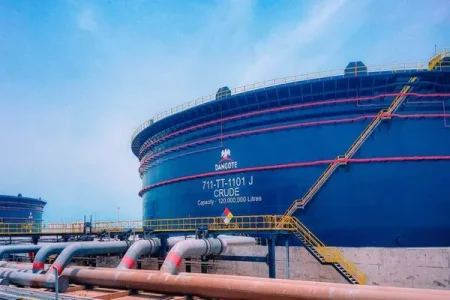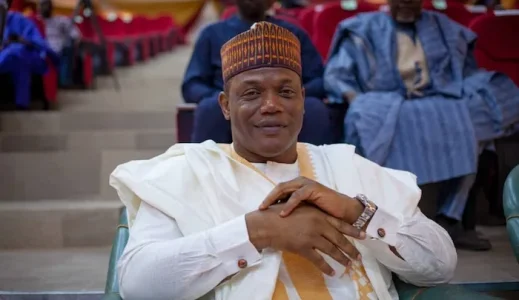Nigeria's Finance Minister, Wale Edun, has underscored the critical importance of stabilising the naira before contemplating the termination of oil subsidies. In a recent dialogue with The Africa Report, Edun conveyed his mission to reassure global investors about Nigeria's unwavering commitment to pivotal economic reforms.
![wale-edun-nigeria-finance-minister].png wale-edun-nigeria-finance-minister].png](https://nigerianbulletin.com/data/attachments/197/197860-28e506c038a258df7504a4e57da0601f.jpg?hash=YjVuZo5xAR)
The revelation follows the ceremonial act of Nigeria's newly elected president, Bola Tinubu. On 20 September, President Tinubu signified a new epoch for the nation by ringing the closing bell at New York's Nasdaq stock exchange. This event, attended by enthusiastic American officials and business magnates from both countries, mirrored a rejuvenated interest in Nigeria's burgeoning economic prospects.
However, the subsequent day presented a stark contrast as the finance team confronted the looming challenges. The intricate dynamics of Nigeria's economic fabric, especially concerning the naira's stability and oil subsidies, have emerged as a central concern for the nation's fiscal strategies.
The accentuation on the naira's stability underscores Nigeria's endeavour to strike a delicate equilibrium between bolstering investor confidence and orchestrating sustainable economic metamorphoses. The nation's allegiance to these reforms will indubitably mould its economic trajectory in the forthcoming years.
![wale-edun-nigeria-finance-minister].png wale-edun-nigeria-finance-minister].png](https://nigerianbulletin.com/data/attachments/197/197860-28e506c038a258df7504a4e57da0601f.jpg?hash=YjVuZo5xAR)
The revelation follows the ceremonial act of Nigeria's newly elected president, Bola Tinubu. On 20 September, President Tinubu signified a new epoch for the nation by ringing the closing bell at New York's Nasdaq stock exchange. This event, attended by enthusiastic American officials and business magnates from both countries, mirrored a rejuvenated interest in Nigeria's burgeoning economic prospects.
However, the subsequent day presented a stark contrast as the finance team confronted the looming challenges. The intricate dynamics of Nigeria's economic fabric, especially concerning the naira's stability and oil subsidies, have emerged as a central concern for the nation's fiscal strategies.
The accentuation on the naira's stability underscores Nigeria's endeavour to strike a delicate equilibrium between bolstering investor confidence and orchestrating sustainable economic metamorphoses. The nation's allegiance to these reforms will indubitably mould its economic trajectory in the forthcoming years.



![[FULL LIST] Tinubu Appoints IBB's Son, Others to Lead Key Agencies](/data/attachments/219/219051-c45e0723af5235b4e99b88eb1fa579fd.jpg?hash=su4VHIBpS9)
